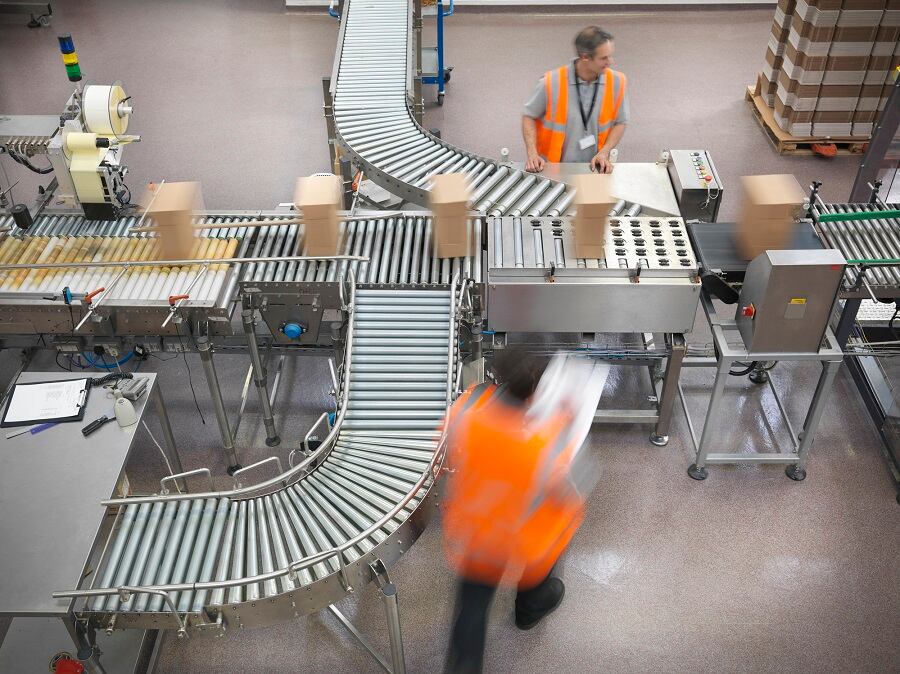“Typical new ingredients can take 20 years or more to reach the market, and the industry is not set up to risk high costs in research and development. Our platform has shown 69% success at discovery phase and >80% at clinical trial, with over 60 patents and 13 publications...With two or more new ingredients a year coming, companies can expect innovation, clinical benefits and reliable published research,” he explained.
Franklyn-Miller elaborated on Nuritas’ peptide effectiveness as a rival to animal protein. With clinical trials in Nutrients and Journal of Nutrition, food and beverage companies can “expect clear claims from our clinical studies and ingredients with clear differentiation on the market.”
Nuritas’ PeptiStrong ingredient underwent clinical trials and published in Nutrients journal as a comparable and potentially sustainable alternative to whey protein. The ingredient also received GRAS status in the US and non-novel food status in Europe.
“All our peptides are plant sourced and we have thorough quality assurance on the source of the natural materials, and every step of the manufacturing process,” he explained.
Unlike traditional methods of ingredient discovery and selection, Nuritas corroborates specific health actions to peptides in its library of over six million ingredients and identifies new plant-based sources in the process. Using AI systems like deep learning and generative modelling to improve flavor profiles and enhanced nutritional values, the company intends to accelerate product development timelines, reduce costs and ensure regulatory compliance.
“Traditional methods of discovery are slow, and usually are small iterations of existing ingredients, or formulation change. What we are doing at Nuritas is having built a library of over six million peptides using our AI platform, is link those to specific health actions and then from our library of sources, unlock the peptides that deliver from natural plant-based sources – bringing brand new ingredients to market,” he said.
With a significant ingredient library to choose from, Nuritas handles intellectual property through patents and licensing, and they offer guidance to interested food and beverage companies. The company’s client list includes large FMCG manufacturers, including Nestle, which include its peptides in their products, particularly as consumer demand for plant-based and sustainable food continues to grow.
Personalized nutrition on the horizon
Looking forward, Nuritas envisions personalized nutrition, wearable technologies, and genetics as the future of AI-driven innovation in the industry, with further areas to explore.
“Personalized medicine and nutrition are just around the corner, as our product portfolio increases it will allow specific applications in response to epigenetic profiling and innovation in wearable technologies to both see the direct benefit of our ingredients. We are using continuous blood glucose monitors, Oura rings and EEG to monitor effectiveness of clinical trials now and see us getting more involved in genetics in the future. AI allows us speed that as the platform learns, will only get better at early identification and we also have new areas of cell culture, preservatives, and taste and antimicrobials to explore so plenty to discover,” he elaborated.
AI’s use is pervasive across industries, despite public skepticism
Consumers, particularly Gen Z and Millennial cohorts, are showing a growing interest in the intersection between food and technology, Americans are generally concerned about the impact of AI used in daily life. In a May 2023 Reuters/Ipsos poll, more than two thirds of Americans were concerned about the negative implications of AI, and 61% believe its threat on civilization.
However, given its uses in ingredient discovery for food, pharmaceuticals and agriculture, perceptions towards AI are still evolving as research in these areas become more visible. “The positive applications of AI, such as revolutionizing drug discovery, are not as visible as ChatGPT,” Ion Stoica, UC Berkeley professor, explained in the Reuters story.
For companies utilizing an AI-powered system to streamline its processes (i.e. marketing, logistics, etc.), it’s important to note for these systems to work, it’s up to the user to input nuanced information that’s specific to the company’s pursuits (particularly for generative AI). Ultimately, there will be a growing need for CPG brands to establish strong and transparent partnerships with technology providers that can provide integrated capabilities.
With a proprietary method to access peptides from plant-based sources, Nuritas offers its clients patented ingredients with functional benefits in less time. For food and beverage companies, this means more time spent on production and marketing, allowing for AI to do the heavy lifting of identifying active ingredients for a booming plant-based market.




